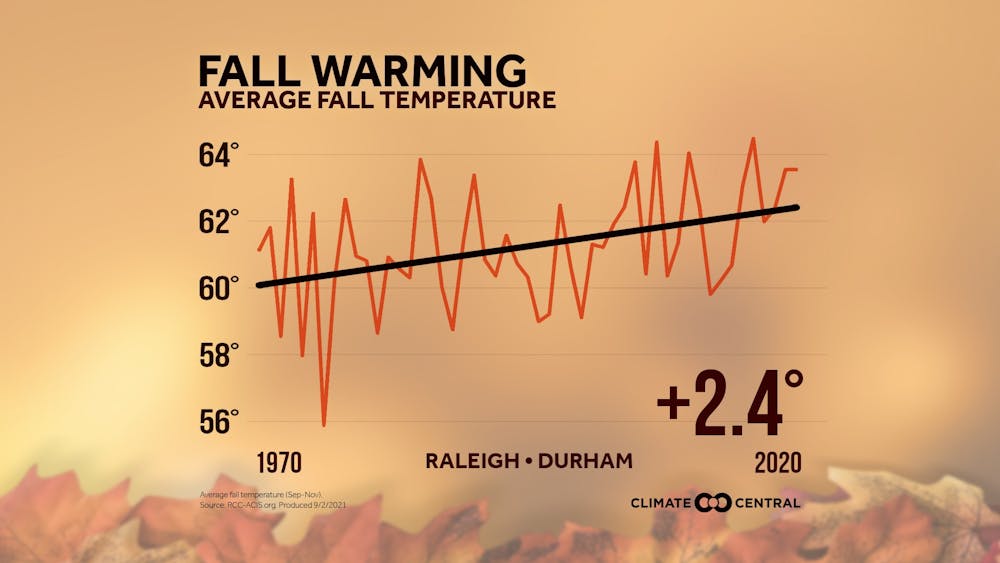The average fall temperature in Raleigh increased by 2.4 degrees Fahrenheit between 1970 and 2020.
Warmer temperatures raise public health concerns within the UNC community and highlight the impending threat of climate change. Extreme heat is the top weather-related cause of death in the United States, presenting a serious risk for children, people over 65 and lower-income communities. The extension of summer heat and humidity into the fall season also impacts allergy sufferers, increases greenhouse gas emissions, drives energy costs up and raises heat-driven air pollution.
Charles Konrad is a professor in UNC's geography department and the director of the Southeast Regional Climate Center. As an applied climatologist, he is interested in taking climate information and translating it into forms that are useful for different communities and sectors of society.
“We all know, the temperature is warming up,” Konrad said. “And then that warming is largely due to human influences, specifically increases in carbon dioxide and methane."
The increase in temperature can be especially concerning for athletes and students who spend a significant amount of time outdoors, Konrad said.
“What can be really concerning, though, from a community perspective, is outdoor workers,” Konrad said. “And some of them don't necessarily have the liberty to take frequent water breaks — they're being paid to get a job done.”
Konrad added that there is an individual responsibility to become more aware of vulnerable groups in the community. He also emphasized the importance of supporting legislative actions to increase regulations and reduce individuals' carbon footprints.
UNC students in environmental groups on campus have also advocated for climate change legislation and are looking for ways to reduce the Triangle area's carbon footprint.
Sophomore Caitlin Flanagan is the president of UNC's Citizens Climate Lobby. The group focuses on lobbying representatives directly and reaching out to local businesses and community leaders to garner political support for climate legislation.




